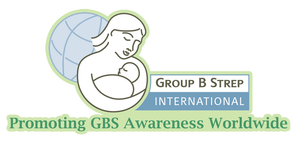James M. Nicholson, MD MSCE
Marti Perhach
7/23/2019 07:57:18 am
Thank you, Dr. Nicholson, for the very thought-provoking presentation! I hope many studies are generated from your talk.
Jim Nicholson
7/23/2019 08:19:35 am
Happy to be a part of the conference!
Group B Strep International
7/23/2019 12:13:22 pm
Which entities do you think would be most likely to conduct studies for some of the mentioned proposed research areas? We have often thought how helpful it would be to have studies done on the efficacy of alternative treatments and are not aware of any being done besides oral probiotics to reduce GBS colonization.
James Nicholson
7/24/2019 10:56:16 am
Not sure what entities are doing this research. Marti @ GBSInternational might know. Ideally such research would measure eradication - as well as relative reduction - and would also consider type of GBS (different types might respond differently) as well as important initial risk factors (race, parity, prior history of GBS sepsis, maternal BMI, etc).
Akeno
7/23/2019 11:15:10 am
Great research ideas. I, myself, am interested to see more research regarding how probiotics impact GBS colonization rates.
James Nicholson
7/24/2019 11:01:06 am
In the attempt at prevention, at least two approaches could be considered: several combined interventions that together obtain the desired outcome, and then determine which ones (or combination[s]) are most effective, or trying one at a time (or specific combination[s] at a time). Either way is ok, but I personally would approach this by using multiple holistic approaches to see if eradication (or reduction) of GBS colonization is possible without the use of antibiotics, and then determining what holistic intervention is most effective.
Mary Li
7/23/2019 01:04:51 pm
I really appreciate your talk. I wonder how future research on GBS risk factors like race will contribute to prevention efforts
James Nicholson
7/24/2019 11:07:24 am
Race could certainly be a factor, but race has recently been described as a risk factor that is difficult to really get a handle on. Race is linked with multiple other risk factors, and many other risk factors are probably important in a propopsed preventive paradigm for any type of GBS sepsis. I may not have emphasized the point well enough in the presentation, but I tend to believe that many "diis-eases" have multiple important risk factors - so probably more than race would need to be considered - at least initially - in the development of an efficient preventive approach.
Marti Perhach
7/23/2019 01:54:28 pm
Do you think vaginal pH testing could be useful for detecting heavy GBS colonization for possible intervention or identification of risk?
James Nicholson
7/24/2019 11:14:47 am
Well worth consideration, and would be relatively easy to study. Vaginal pH could be tested at the same time as GBS assay/culture to see if a correlation exists - and if so how strong the correlation is (measuring false +'s and false -'s). Again, it might be important to determine the type of GBS along with its presence, and the degree/intensity of colonization. This is an example of the consideration of a possible risk factor - but then the finding of an "abnormal" vaginal pH (higher than normal, I assume) would only mean a higher likelihood of heavy GBS colonization and would not per se lead to prevention. An effective intervention would be needed to complete a successful prevention strategy. Maybe certain strategies would be better in the setting of abnormal pH 9with GBS positivity) and others would be better in the setting of normal pH (with GBS positivity). So lots of questions....
Kate Braye
7/25/2019 05:31:50 pm
ear Dr Nicolson
James Nicholson
7/26/2019 05:33:48 am
Thanks for the comment and excellent questions. There are clearly many areas that could be researched regarding the many aspects of GBS sepsis - including best methods for prophylaxis. Comments are closed.
|
Join the Campaign against GBS Disease in babies! |
CONNECT TO GBSI |

